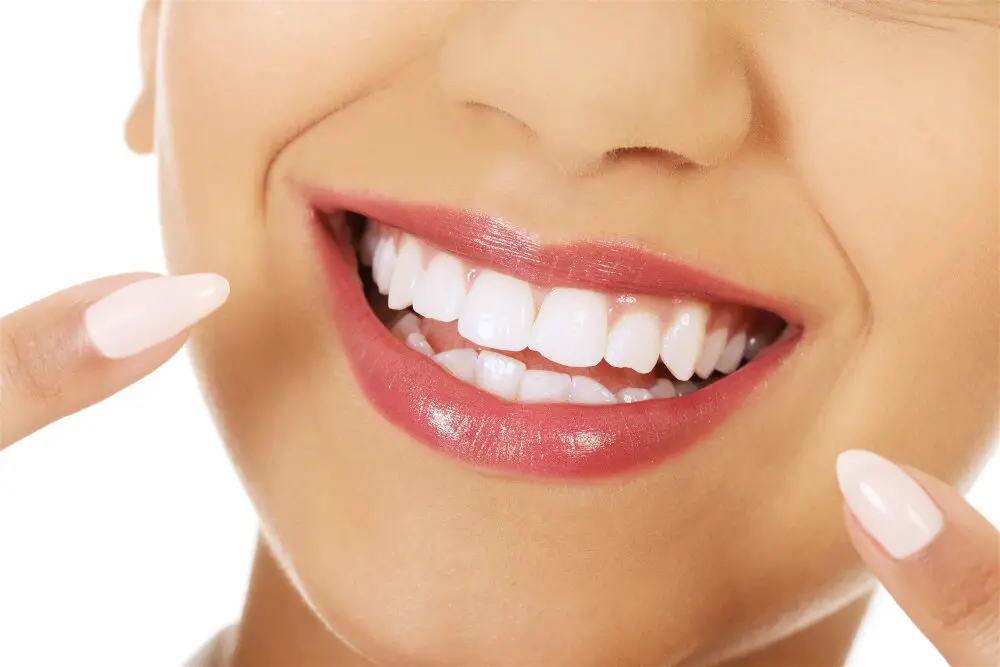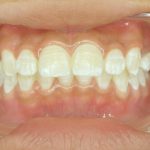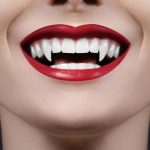Why Transparent Teeth Happen and How to Prevent Them

Transparent teeth can be a cause of concern for many people. It is a condition where the teeth appear translucent or transparent at the edges, making them look fragile and weak. This condition can be alarming for those who take pride in their dental hygiene and appearance. However, it is essential to understand that transparent teeth are a common dental problem that affects many individuals. There are several reasons why transparent teeth happen, and it is crucial to know them to prevent the condition from worsening. The transparency of teeth can occur due to various reasons such as enamel erosion, genetics, aging, and excessive consumption of acidic foods and drinks. Enamel erosion is the most common cause of transparent teeth. The enamel is the outer layer of the teeth that provides protection and strength to the teeth. When the enamel wears off, the teeth become translucent, and the underlying dentin becomes visible. Genetics can also play a role in the transparency of teeth, as some people may have thinner enamel than others. Additionally, as we age, our enamel naturally wears off, making our teeth more prone to becoming transparent. It is crucial to understand the reasons behind the transparency of teeth to prevent further damage and take necessary precautions to maintain healthy and strong teeth.
Transparent teeth refer to the condition where the edges of the teeth become translucent, allowing the underlying dentin to show through. This is often caused by the thinning or wearing away of the enamel, the hard, protective outer layer of the teeth. While enamel wear can occur naturally over time, it can also be accelerated by factors such as acidic foods and drinks, tooth grinding, or improper brushing habits. Transparent teeth can be a cosmetic concern for some, as they can make the teeth appear less white and healthy. However, they can also be an indication of underlying dental problems, such as tooth decay or gum disease. Therefore, it is important to take steps to prevent and treat transparent teeth, such as maintaining good oral hygiene habits and visiting the dentist regularly for check-ups and cleanings.
Transparent teeth, also known as translucent teeth, occur when the enamel on the tooth wears away, causing the underlying dentin to become visible. There are several causes of transparent teeth, including genetics, habitual teeth grinding, acidic foods and drinks, and over-brushing. Genetics can play a role in the thickness of tooth enamel, which can affect the transparency of teeth. Habitual teeth grinding, also known as bruxism, can wear down the enamel over time. Consuming acidic foods and drinks, such as citrus fruits and soda, can also damage the enamel and make teeth more transparent. Finally, brushing too hard or using a toothbrush with hard bristles can wear away the enamel and lead to transparent teeth. To prevent transparent teeth, it is important to practice good oral hygiene, avoid acidic foods and drinks, and treat any underlying conditions that may be causing bruxism.
Enamel Erosion

Enamel erosion is a common dental problem that occurs due to the destruction of the outer layer of the tooth called the enamel. The enamel is the protective layer of the tooth that shields it from harmful bacteria and tooth decay. Various factors can cause enamel erosion, including consuming acidic foods and drinks, poor oral hygiene, aggressive brushing, and dry mouth. When the enamel wears off, the underlying layer of the tooth called dentin becomes exposed, leading to increased sensitivity, yellowing, and transparency of the teeth. Transparent teeth are a significant sign of enamel erosion and can be a cause of concern for many people. It can affect the appearance of the teeth, causing them to look dull and unhealthy. Enamel erosion can also affect the function of the teeth, leading to discomfort and pain while eating or drinking. To prevent enamel erosion, it is essential to maintain good oral hygiene practices such as brushing twice a day, flossing, and using mouthwash. It is also important to limit the consumption of acidic and sugary foods and drinks and to use a soft-bristled toothbrush while brushing the teeth. Regular dental check-ups and cleanings can also help identify and treat enamel erosion before it becomes severe.
Enamel erosion is the process of gradual loss of the hard, outer layer of the teeth, which is primarily composed of minerals such as calcium phosphate. This can occur due to a variety of factors, including frequent consumption of acidic foods and drinks, inadequate oral hygiene practices, and certain medical conditions. When the enamel is eroded, the underlying dentin layer becomes exposed, leading to increased sensitivity, discoloration, and even transparency of the teeth. To prevent enamel erosion, it is important to maintain good oral hygiene habits, limit consumption of acidic substances, and seek treatment for any underlying medical conditions that may be contributing to the problem.
Enamel erosion is often caused by a combination of factors, including acidic foods and drinks, dry mouth, acid reflux, and tooth grinding. Acidic foods and drinks, such as citrus fruits and carbonated beverages, can weaken the enamel if consumed in excess. Dry mouth, which can be caused by medications or certain medical conditions, can also contribute to enamel erosion because saliva helps to neutralize acids in the mouth. Acid reflux, which occurs when stomach acid flows back up into the mouth, can also erode the enamel over time. Finally, tooth grinding can wear down the enamel and make it more susceptible to erosion. To prevent enamel erosion, it is important to limit acidic foods and drinks, stay hydrated, treat acid reflux, and wear a mouthguard if you grind your teeth.
Transparent teeth can be caused by a variety of factors, including genetics, enamel erosion, and overconsumption of acidic foods and drinks. Preventing transparent teeth involves a combination of good oral hygiene practices and dietary modifications. Regular brushing and flossing, using fluoride toothpaste, and visiting the dentist for regular cleanings and check-ups can help strengthen enamel and prevent erosion. Limiting the intake of acidic foods and beverages such as citrus fruits, soda, and sports drinks can also help prevent transparent teeth. It is also important to avoid tooth grinding and clenching, which can cause enamel to wear down. By taking these preventive measures, one can maintain a healthy and bright smile for years to come.
Teeth Grinding

Teeth grinding, medically known as bruxism, is a common dental problem that can lead to several oral health issues, including transparent teeth. This condition is characterized by clenching and grinding of teeth unconsciously, usually during sleep. Teeth grinding can cause enamel erosion, which is the hard, protective outer layer of the teeth. Over time, the enamel can become worn down, leading to transparent teeth that are more susceptible to decay and sensitivity. Stress, anxiety, and sleep disorders are some of the primary causes of teeth grinding. However, it can also be caused by misaligned teeth or a faulty bite. Preventing teeth grinding is essential to keep your teeth healthy and prevent the development of transparent teeth. The most effective way to prevent teeth grinding is by managing stress and anxiety levels. Engaging in stress-relieving activities, such as yoga, meditation, and exercise, can help reduce stress levels and prevent teeth grinding. Additionally, wearing a mouthguard at night can also help protect the teeth from damage caused by grinding. If misaligned teeth or a faulty bite is the cause of teeth grinding, orthodontic treatment may be necessary to correct the alignment and prevent further damage to the teeth. In summary, teeth grinding is a common dental problem that can lead to transparent teeth, but with proper prevention and treatment, it can be easily managed and prevented.
Teeth grinding, also known as bruxism, is a common condition that occurs when a person grinds or clenches their teeth, often unconsciously. The causes of teeth grinding are not fully understood, but it is believed to be related to stress and anxiety, as well as certain medications and substances like caffeine and tobacco. Over time, teeth grinding can lead to a variety of dental problems, including worn-down teeth, jaw pain, and even tooth fractures. To prevent teeth grinding, it is important to manage stress and anxiety levels, avoid caffeine and tobacco, and seek treatment from a dental professional if necessary.
One of the causes of teeth grinding, also known as bruxism, can be attributed to stress and anxiety. When experiencing high levels of stress, the body’s natural response is to tense up, and this can include clenching the jaw and grinding the teeth. Additionally, sleep disorders such as sleep apnea and snoring can also contribute to teeth grinding. Physical factors such as misaligned teeth, jaw problems, and even certain medications can also play a role in causing bruxism. It’s important to identify the cause of teeth grinding in order to properly treat and prevent any damage to the teeth and gums.
Transparent teeth can be a result of various factors, such as genetics, aging, and excessive consumption of acidic foods and drinks. However, there are several prevention tips that can help to maintain the natural color of teeth. Firstly, one should limit the intake of acidic beverages and foods, such as soft drinks, citrus fruits, and vinegar-based dressings, as they can erode the enamel and make teeth appear transparent. Secondly, regular visits to the dentist for check-ups and cleanings can help to identify any early signs of enamel erosion and prevent further damage. Additionally, using a soft-bristled toothbrush and brushing twice a day with fluoride toothpaste can help to strengthen the enamel and prevent tooth decay. Lastly, avoiding habits such as teeth grinding and smoking can also help to maintain healthy and natural-looking teeth.
Acidic Foods and Drinks

Acidic foods and drinks can be a major culprit in causing transparent teeth. Foods and drinks that have a high acidic content can erode the enamel on teeth, leading to a see-through appearance. Some common acidic foods and drinks include citrus fruits, vinegar, soda, and sports drinks. When these items are consumed frequently or in large amounts, they can cause the enamel on teeth to wear away, making the teeth appear more transparent. To prevent this from happening, it is important to limit the consumption of acidic foods and drinks and to rinse the mouth with water after consuming them. In addition to limiting the consumption of acidic foods and drinks, there are other preventative measures that can be taken to avoid transparent teeth. Brushing and flossing regularly is important to remove any food particles and bacteria that can lead to tooth decay and erosion. Using a fluoride toothpaste and mouthwash can also help to strengthen the enamel on teeth and prevent erosion. Regular dental checkups and cleanings are also crucial in maintaining healthy teeth and catching any issues, such as transparent teeth, early on. By taking these preventative measures, it is possible to avoid transparent teeth and maintain a healthy, bright smile.
Acidic foods and drinks are those that have a low pH level, which means they are highly acidic. These types of foods and drinks can cause erosion of the enamel on our teeth, which can lead to transparent teeth over time. Examples of acidic foods and drinks include citrus fruits, soft drinks, sports drinks, wine, and coffee. When we consume these types of foods and drinks, the acid in them attacks the enamel on our teeth, which can cause it to wear away over time. To prevent transparent teeth, it is important to limit our intake of acidic foods and drinks, and to brush our teeth regularly with a fluoride toothpaste to help strengthen the enamel on our teeth.
Dental erosion is a gradual process that occurs when the enamel of teeth gets eroded due to the exposure of acidic foods and drinks. The main cause of dental erosion is the frequent consumption of acidic substances, such as citrus fruits, soda, and sports drinks. These substances contain high levels of acid, which can soften the enamel and cause it to wear away over time. Additionally, certain medical conditions such as acid reflux and bulimia can also contribute to dental erosion. When the enamel is eroded, the underlying dentin is exposed, leading to transparent teeth. To prevent dental erosion, it is important to limit consumption of acidic foods and drinks, drink plenty of water, and practice good oral hygiene.
Transparent teeth can be a sign of weakened enamel, which can lead to tooth sensitivity and even cavities. To prevent this condition, it’s essential to practice good oral hygiene habits such as brushing twice a day with fluoride toothpaste, flossing daily, and using an alcohol-free mouthwash. Additionally, reducing your intake of acidic foods and drinks such as citrus fruits, soda, and sports drinks can help prevent erosion of the enamel. It’s also crucial to limit your intake of sugary snacks and drinks, which can contribute to tooth decay. Finally, seeing your dentist regularly for cleanings and checkups can help catch any potential problems early and ensure that your teeth remain healthy and strong.
Genetics

Genetics play a significant role in the development of transparent teeth. The enamel, which is the outermost layer of teeth, is composed of hydroxyapatite crystals. The thickness and density of the enamel depend on the individual’s genetics. Some people may have thinner enamel than others due to inherited genes. This thinning of enamel can lead to transparent teeth, making the underlying dentin visible. Additionally, certain genetic conditions, such as amelogenesis imperfecta and dentinogenesis imperfecta, can cause the enamel and dentin to be weaker and more prone to transparency. Preventing transparent teeth involves maintaining good oral health habits and avoiding factors that can damage the enamel. Brushing twice a day with fluoride toothpaste, flossing daily, and visiting the dentist regularly can help keep the enamel strong and healthy. Additionally, avoiding acidic foods and beverages, such as citrus fruits and soda, and minimizing sugar intake can prevent erosion of the enamel. Using a mouthguard while playing sports and avoiding grinding or clenching teeth can also protect the enamel from damage. By taking care of the enamel, individuals can prevent transparent teeth and maintain a healthy, bright smile.
Transparent teeth can be caused by genetics, specifically, a condition called enamel hypoplasia. This is a genetic disorder that affects the development of enamel, the hard outer layer of the teeth. Enamel hypoplasia can cause the teeth to become thin and translucent, making them more susceptible to damage and decay. The condition is often inherited from one or both parents and can also be caused by environmental factors such as malnutrition, infection, and trauma. Although there is no cure for enamel hypoplasia, preventive measures such as maintaining good oral hygiene, avoiding acidic foods and drinks, and regular dental check-ups can help to prevent further damage and protect the teeth from decay.
If you have a genetic predisposition to transparent teeth, there are several steps you can take to prevent further damage. Firstly, it is essential to maintain good oral hygiene by brushing twice a day with fluoride toothpaste and flossing daily. Additionally, avoiding acidic foods and drinks, such as carbonated drinks, citrus fruits, and vinegar-based dressings, can help prevent enamel erosion and maintain the strength of your teeth. Regular dental check-ups are also crucial, as your dentist can identify any early signs of enamel loss and provide appropriate treatment. Finally, using fluoride mouthwash can help remineralize your teeth and keep them strong and healthy. By following these prevention tips, you can help protect your teeth and prevent further damage, even if you have a genetic predisposition to transparent teeth.
Transparent teeth happen due to enamel erosion, which can be caused by various factors such as overconsumption of acidic foods and drinks, poor oral hygiene, teeth grinding, and certain medical conditions. Enamel erosion exposes the dentin layer, which is naturally yellow in color, making the teeth appear transparent. Preventing transparent teeth requires a combination of good oral hygiene practices, such as brushing twice a day with fluoride toothpaste, flossing daily, and using a mouthwash that contains fluoride. Additionally, limiting intake of acidic foods and drinks, avoiding teeth grinding, wearing a mouthguard during sports activities, and seeking treatment for any underlying medical conditions can also help prevent transparent teeth. By following these preventive measures, one can maintain a healthy and beautiful smile.
Regular dental checkups play a vital role in maintaining healthy teeth and gums. These checkups not only help prevent issues such as cavities, gum disease, and tooth decay, but also allow your dentist to identify and treat any early-stage issues before they become more severe. In the case of transparent teeth, regular checkups can help identify the cause and provide treatment to prevent further transparency. Additionally, regular cleanings and checkups can help remove any buildup of plaque or tartar that can contribute to tooth transparency. By prioritizing regular dental checkups, you can take proactive steps to maintain optimal oral health and prevent issues like transparent teeth from occurring.
In conclusion, transparent teeth can be a cosmetic concern for many people, and it is caused by a variety of factors including genetics, age, and lifestyle habits. However, there are several ways to prevent or minimize the appearance of transparent teeth, such as maintaining good oral hygiene, avoiding acidic and sugary foods, and using a fluoride toothpaste. Regular dental check-ups and professional cleanings are also crucial in identifying and addressing any dental issues early on. By following these preventive measures, individuals can maintain healthy and attractive teeth, and enjoy a confident and radiant smile for years to come.
Conclusion

In conclusion, transparent teeth can occur due to a variety of factors, including genetics, aging, and dental erosion. While there is no guaranteed method to prevent transparent teeth, there are several measures that can be taken to reduce the risk. These include maintaining good oral hygiene practices, consuming a well-balanced diet, avoiding acidic drinks and foods, and wearing protective gear during high-impact sports activities. It is also important to visit a dentist regularly for check-ups and professional cleanings. By taking these steps, individuals can help to preserve the health and appearance of their teeth, and avoid the potential embarrassment and discomfort that can come with transparent teeth.








